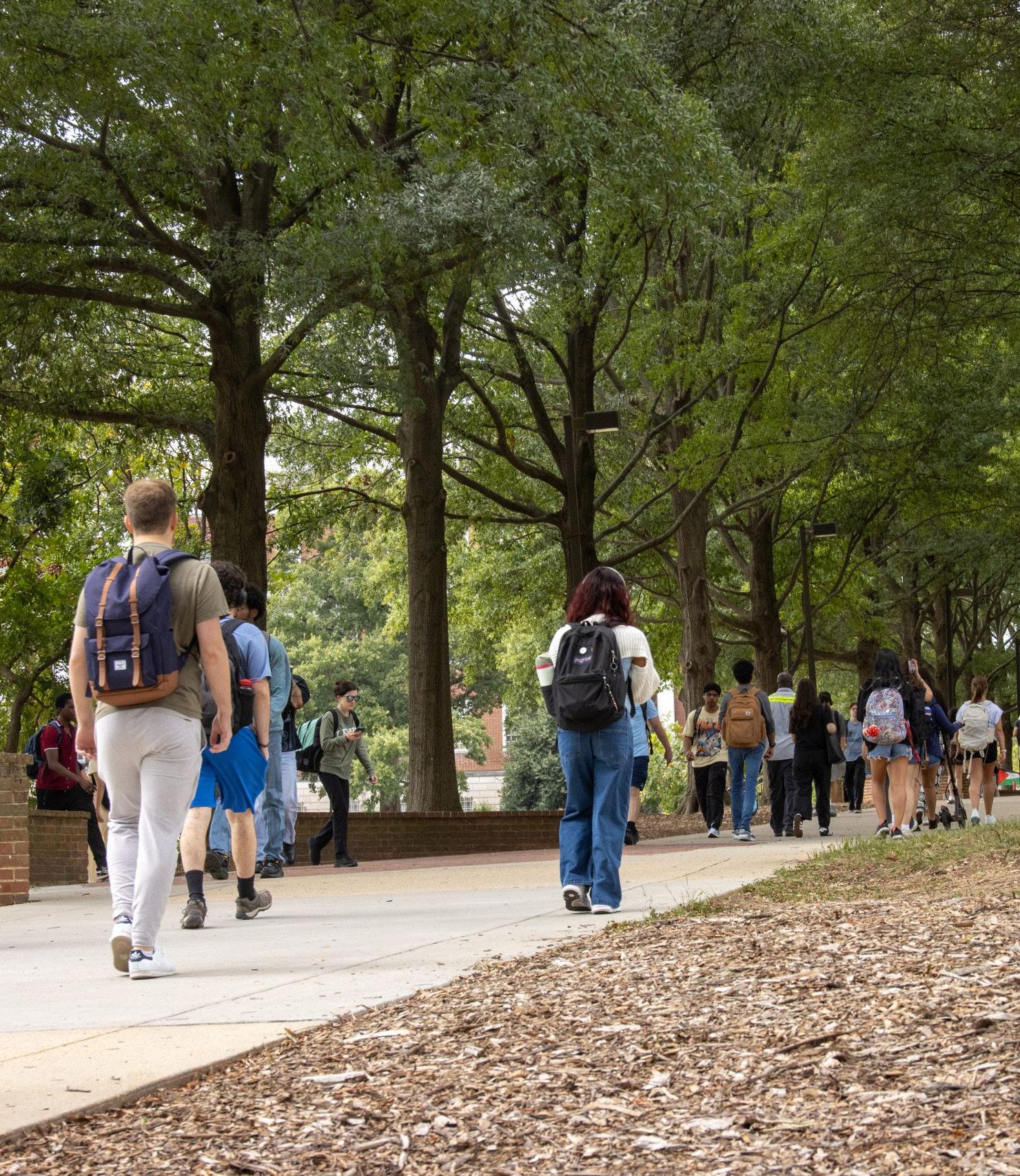

THE DIAMONDBACK grad guide
CONTENTS
3 graduate protest
5 payroll delays
Founded 1910, independent since 1971.
LIZZY ALSPACH Editor-in-Chief
3150 S. Campus Dining Hall, College Park, Md., 20742 (301) 314-8200 https://dbknews.com/contact-us/
FULLY UPDATED AND EDITED BY:
Stella Garner
ADVERTISING: ads@dbknews.com (301) 276-5770
ORIGINAL TEXT BY:
Lillian Glaros
Oliver Mack
Irit Skulnik
Amelia Twyman
6 gsg international students
7 graduate labor union recognition
COPY EDITED BY:
Lizzy Alspach
Olivia Borgula
Randy Chow
Natalie Jakubiak
Alexa Taylor
THE DIAMONDBACK:
Job openings: https://dbknews.com/jobs/ Newsletter: https://ter.ps/DBKNL
Graduate School Deadlines
Nov. 12 - Graduate program registration deadline
Nov. 14 - Dissertation forms
Dec. 3 - Thesis forms
DESIGNED BY:
Rebecca Safra
Oliver Mack
FRONT COVER PHOTO BY:
Sam Cohen
FIND US ON SOCIAL MEDIA:


@thedbk @thedbk



@dbkonline the diamondback
Jan. 8 - Master’s programs, post-baccalaureate certificates and professional practice doctoral programs
UMD graduate workers march for collective bargaining rights, union recognition
By Oliver Mack | Deputymanagingeditor
About 1,000 University of Maryland community members gathered Wednesday to demand collective bargaining rights for graduate workers.
Protestors marched along Route 1 to College Park City Hall and called on this university to voluntarily recognize graduate workers’ right to unionize and begin collective bargaining with the Graduate Labor Union, which would allow them to negotiate stipends, working hours and other conditions.
“For our union we will fight, ignore us if you want a strike,” participants chanted during the march.
Organizer and education doctoral student Cody Norton said Wednesday’s protest was a continued escalation of previous action demanding voluntary recognition from the university.
“We want to be collaborative, and we are happy to do that when they recognize our right to unionization,” Norton said.”
Voluntary recognition is when an employer acknowledges a union once a majority of employees show support, according to the U.S. Department of Labor. More than 2,300 graduate workers accounting for nearly 57 percent of the graduate workforce have already signed union authorization cards, which signal their desire to join the union, computer science doctoral student Sora CullenBaratloo said.
The march culminated in speeches in front of City Hall and the unveiling of a letter that the workers plan to send to university president Darryll Pines after collecting

2,000 signatures. The letter emphasizes the importance of graduate workers and cites other schools across the country that have allowed unionization.
“Until we have a democratic and legally binding voice to help the university to live up to its stated values for its students and employees, we will continue to take whatever actions are necessary to secure our fundamental right to a recognized union,” the letter read.
Striking is also a possibility if the university fails to meet the group’s demands, Norton said.
“If the university again refuses to recognize our fundamental right to unionization, then the next step forward is likely going to be withholding our labor through some sort of labor stoppage action,” Norton said.
This university’s administration has repeatedly testified against bills in the Maryland General Assembly that would grant graduate student workers the right to collectively bargain, which is not currently required by state law.
Though this university did not provide direct comment on the march, it said in a statement to The Diamondback that the administration “continues to work closely with the Graduate Student Government, the Graduate Assistant Advisory Council, and other student groups to identify student concerns and work to find common ground in advancing improvements.”
The fight for collective bargaining rights is especially important amid U.S. President Donald Trump’s attacks on science funding and higher education, event organizer Jeremy Shuler said.
“Fundamentally, [collective bargaining] forces the university to have a contract with graduate students and bargain with graduate students, so that we will be present whenever [the] university makes a decision about us, and we’ll be there to make sure that they sufficiently respect what we want,” Shuler, a graduate research assistant for the physics department, said.
Graduate students have marched across campus in the past, but this demonstration took place off campus to show that the movement is larger than the university and to avoid university protest regulations, Cullen-Baratloo said.
A number of graduate workers and community members spoke during the gathering at City Hall, including masters student Jenan El-Hifnawi, who spoke about the struggles many graduate students face from their limited stipends.
“Nobody working full time at a university should be struggling to pay rent or feed themselves,” El-Hifnawi said during her speech.
Cullen-Baratloo said she thought the march went “really well” and left the demonstration feeling “pumped.”
“I really hope they just decide to recognize our union,” Cullen-Baratloo said. “I think it would kind of save the university a lot of headache. It would save us a lot of headache, and then we could begin bargaining as soon as possible.”

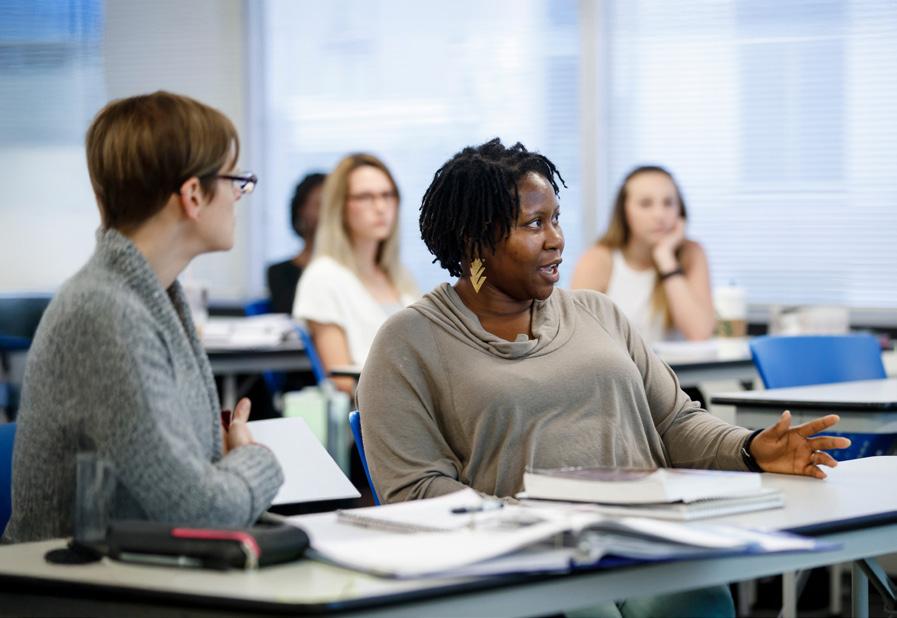
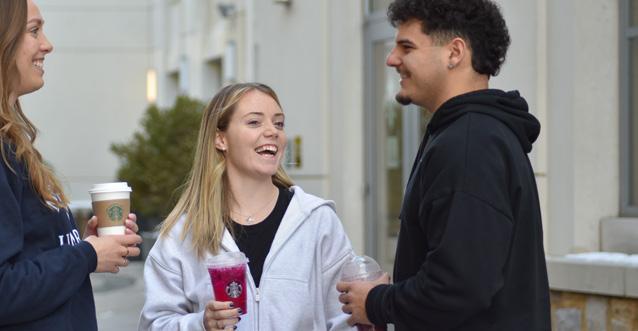
READY FOR WHAT’S NEXT?
Take your next step to success with Marymount. Advance your career, explore a new field, or grow as a leader through graduate programs built for flexibility and personal attention.
Study on campus in Arlington, online, or in a hybrid format, and connect with professors and peers who champion your success. Your future awaits—let’s begin.
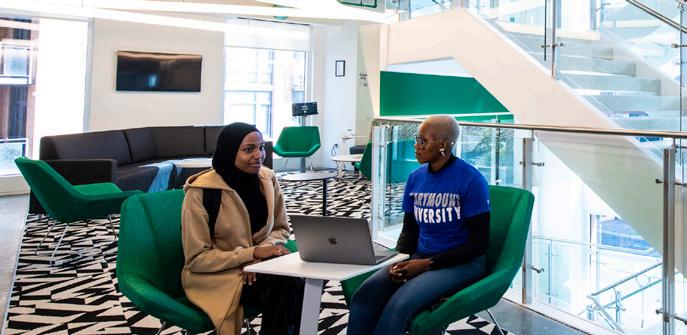

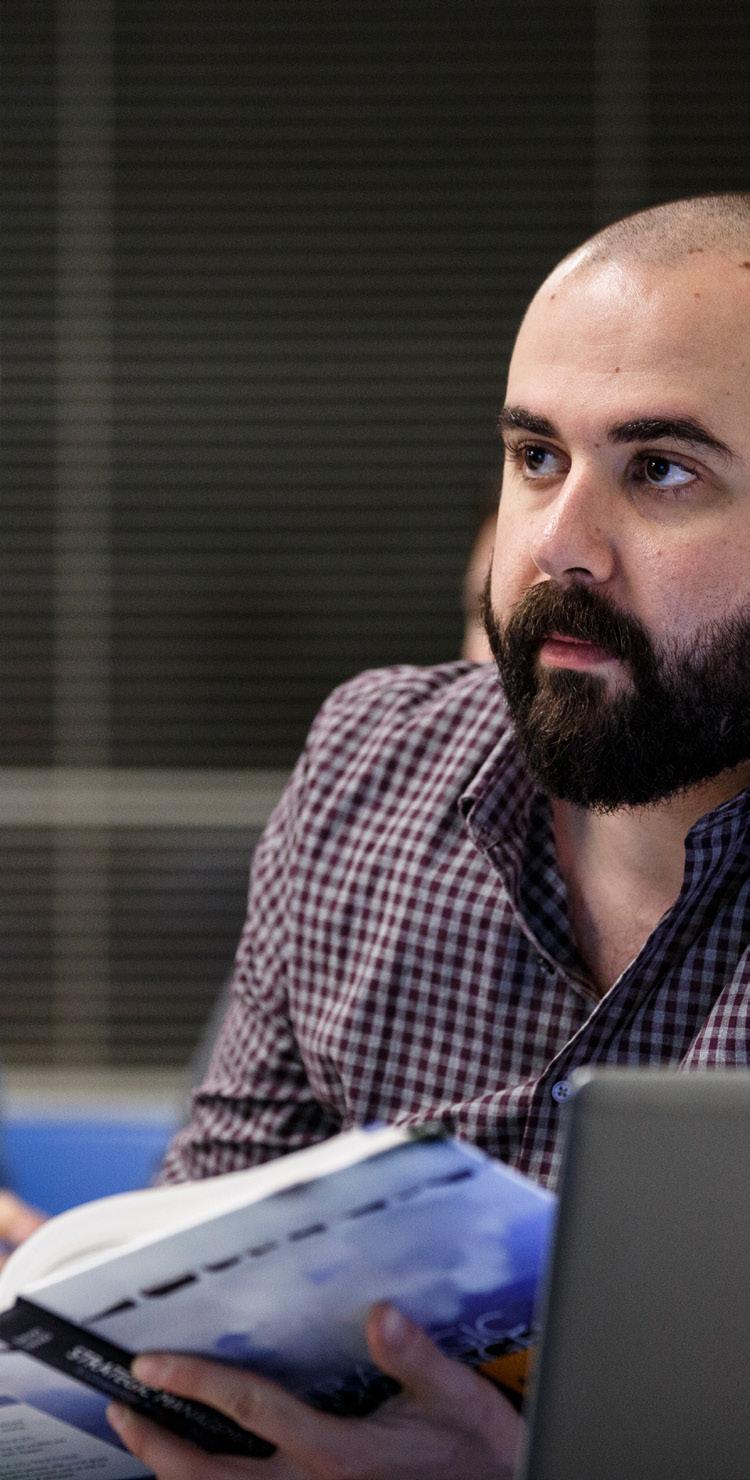

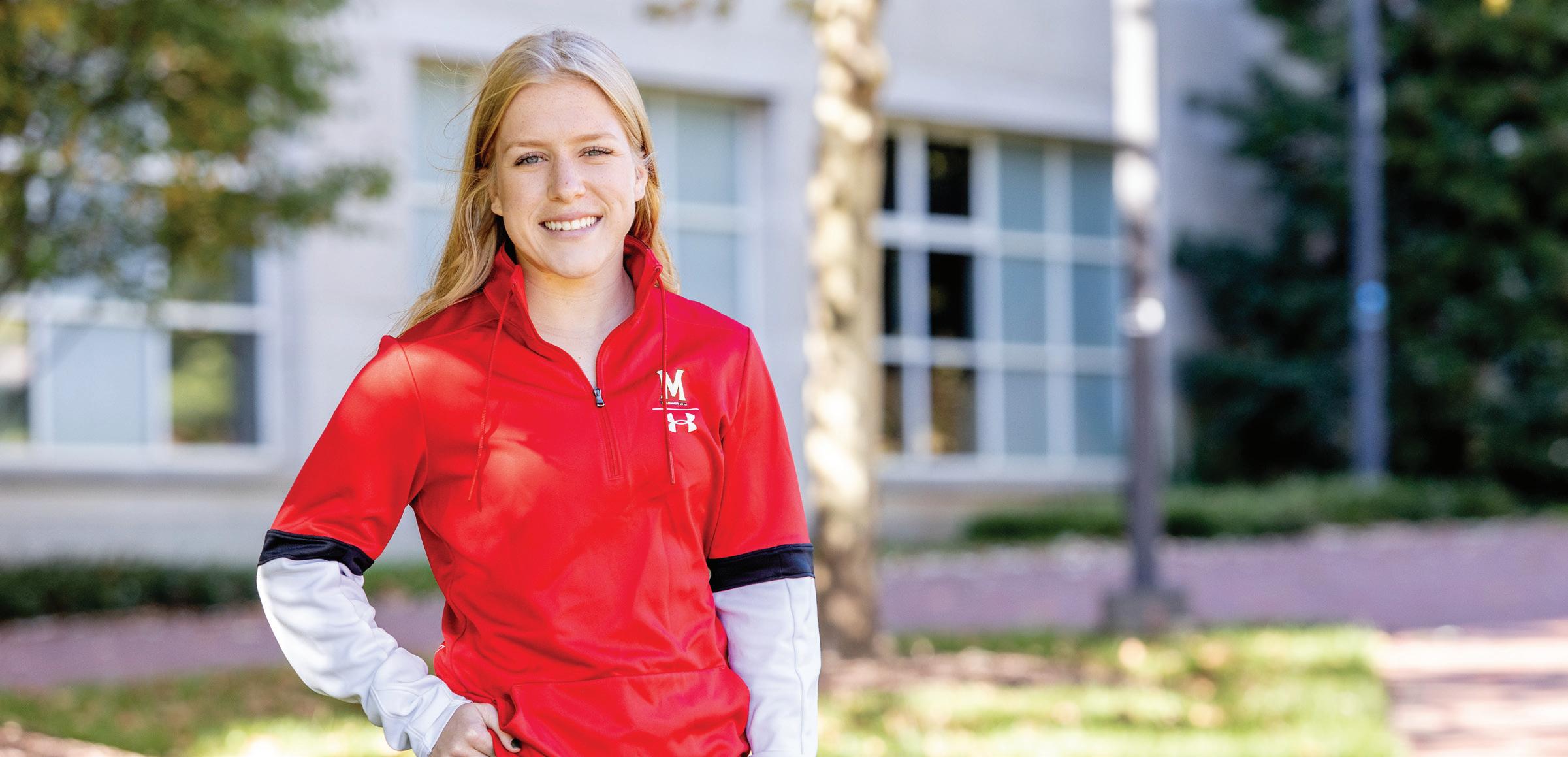
UNLOCK MORE OPPORTUNITIES WITH PLUS 1
Hope Lewandoski, a former UMD athlete, paired her kinesiology undergraduate degree with an accelerated business master’s degree through the Plus 1 program. Within four years, she became the Director of Operations for Women’s Basketball at a Division I university.
DISCOVER WHAT A BUSINESS MASTER’S DEGREE CAN UNLOCK FOR YOU.
PLUS 1 ADVANTAGES
Save time and money on your master’s degree.
Take graduate-level courses as an undergraduate student.
Diversify your skills and boost your career potential.
Take advantage of waived test scores.
GRADUATE DEGREE PROGRAMS
Accounting
Business Analytics
Finance
Information Systems
Management Studies
Marketing Analytics
Quantitative Finance
Supply Chain Management
UMD graduate workers call for more transparency after summer payroll delays
By Irit Skulnik I Staff writer
University of Maryland physics doctoral student Taylor St Jean panicked when the paycheck he was banking on to pay his rent didn’t hit his account.
At the time, St Jean — a summer research assistant in the physics department — didn’t notice he had also missed his first paycheck.
“I live paycheck to paycheck, so missing a paycheck is a big deal,” St Jean said.
St Jean is one of several university workers who experienced missed or delayed payments this summer on the university’s new cloud-based platform, Workday. It replaced the university’s former administrative and finance systems in November and overhauled systems such as payroll and human resources.
The Graduate Labor Union received more than 100 reports of missing payments since this university transitioned to the new administrative system last fall, according to a July email from the campus organization, which advocates for collective bargaining rights for graduate student workers.
The university wrote in a statement last week that it’s tracking fewer workers affected by payroll problems than GLU estimated.
Some of these employees are calling for increased com-
munication from this university about payroll and payment errors.
St Jean said he was able to get back pay for those first few weeks during the next pay period. Other employees said they have not yet received all of the compensation they are owed from the summer.
Journalism graduate student Mary Burke, who worked as a reporter for this university’s Howard Center for Investigative Journalism this summer, said she started work on June 16 but didn’t receive her first paycheck until about Aug. 1.
Burke said the journalism college’s business office told her the payment delays were because there was an issue with her ability to enter her hours in Workday’s timesheet.
Even after the issue was resolved, she still hasn’t been fully paid for the work she did over the summer.
“It’s really not fair to just hold money hostage like this,” Burke said. “Not that they’re doing it intentionally, but there are people who need this money on a week to week basis.”
After St Jean brought the issue to the physics payroll office, he said he was paid for those first few weeks in the following pay period. He said his issue stemmed from not being entered into the Workday system, despite completing all of his onboarding requirements.
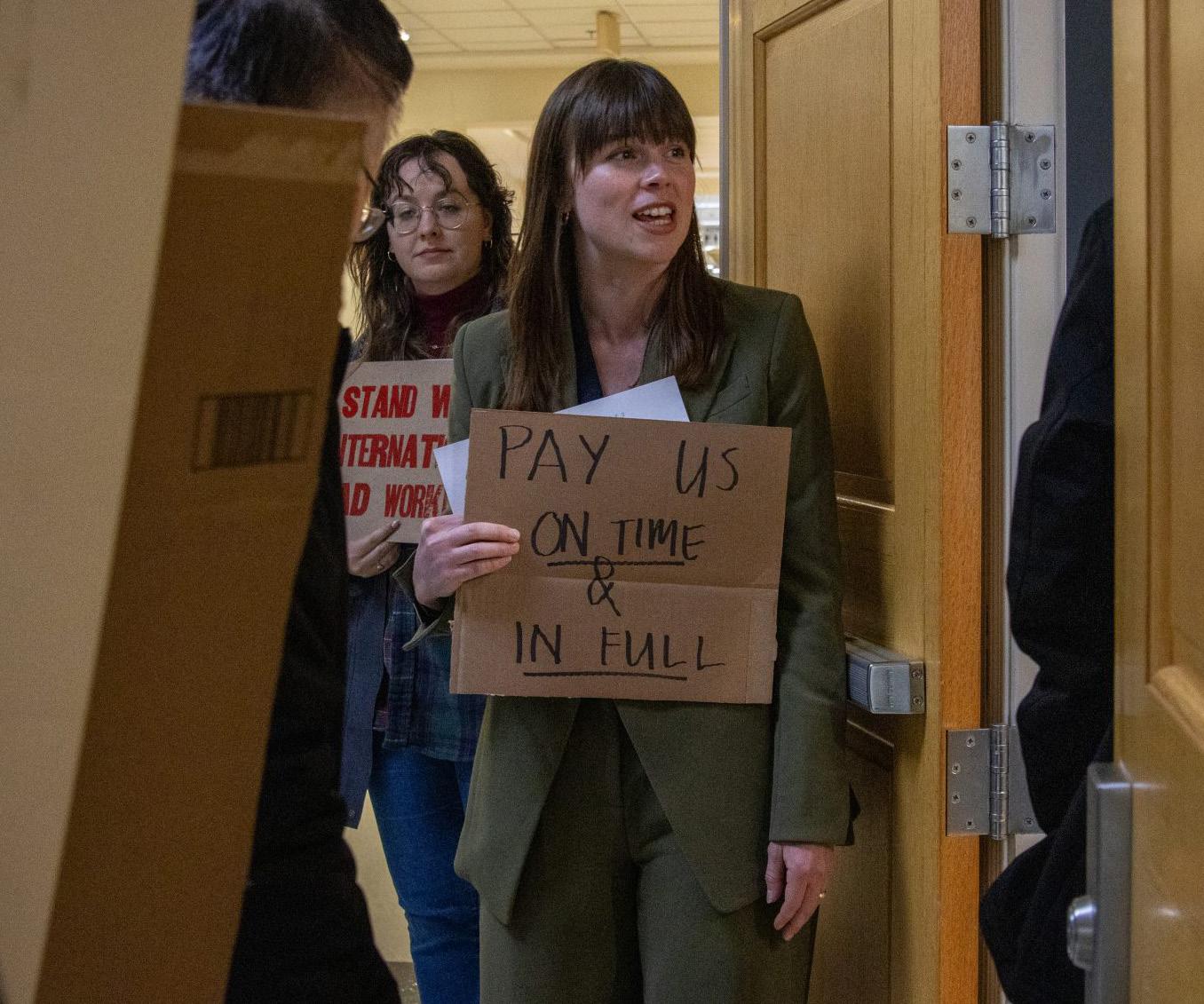
While he was still waiting for back pay, St Jean said he had to put his rent payment on a credit card. His mom helped him pay for groceries.
“This not only put me in a bad situation, but also put my family in a bad situation, which I really don’t like,” St Jean said.
This university wrote in a statement that it is “committed to paying all employees accurately and on time.” When this university became aware of delayed payments, its human resource department “provided guidance to all employees to address these concerns,” the statement read.
This university is not aware of any outstanding payroll issues, a Monday statement confirmed, noting the issues were handled by individual departments and colleges.
“The University acted quickly to identify and resolve these issues, and all affected individuals have since been paid,” last week’s statement read.
Philip Reisler, an electrician for Facilities Management at this university, started his paid paternity leave on Aug. 4. A couple weeks later, Reisler received his paycheck and noticed it was only about two-thirds of what he should have made.
Reisler was told by his department’s payroll office that it was a Workday issue and he received the missing compensation on his next paycheck. Still, he said the issue impacted him “mentally and emotionally,” especially coming off the heels of his daughter being born.
“You’re expecting to be able to provide for your family, you know?” Reisler said.
On Aug. 1, university administrators sent an email to faculty, staff, graduate assistants and HR partners and representatives announcing a Payroll Resource Guide to help address payment issues.
“July marked the start of the first full fiscal year in our relatively new HR/payroll system, Workday,” the email read. “As with any new system, we understand that this transition may bring some uncertainty or questions.”
The resource guide includes a FAQ section and information on how employees can review their pay details and figure out who to contact for help with payroll issues.
Caspar Popova, a doctoral student studying computer science, also experienced delayed pay this summer and said he never received an explanation as to why his pay wasn’t delivered on time.
“I should have been paid on time,” Popova said. “It is not appropriate to be withholding pay, especially not for so long and without explanation and without reporting on how widespread this issue was.”
Protesters stand outside of the Colony Ballroom in Stamp Student Union before the University Senate meeting to advocate for full payment for graduate student wages on March 6, 2025. (sam cohen/The Diamondback)
New UMD GSG committee seeks to protect international students
By Lillian Glaros | Staff writer
As the University of Maryland GSG reaches its highest membership in five years, program representatives are focusing their efforts this year on supporting international students.
At the beginning of the semester, the Graduate Student Government formed an international student affairs committee to advocate for international students and the issues facing their community. Since its creation, the committee has become the governing body’s largest with about 15 members.
The committee’s growth comes as the organization as a whole has grown.
After starting off the year with just 17 members, the GSG now has more than 50, wrote GSG president Keegan Clements-Housser. He estimated about half of those members are international students.
Many students likely ran for seats in the assembly to be a part of the international student affairs committee, the journalism doctoral student said.
Clements-Housser said many students are uncertain about visa issues. Seven people at this university last spring had their visas revoked and later restored in spring 2025.
“There’s been concerns about not being re–admitted back into the country if you visit family over the break,” Clements-Housser said.
These issues drove many students to get involved, he said.
Gabriel Dogbanya, an international student from Nigeria and maternal and child health doctoral student, said he
ran for GSG to represent his program and be a voice for international students’ concerns.
Dogbanya said that he considers the current immigration climate as unsettling.
“So as an international student, it’s also good to be in these forums where issues related to student welfare, student academics and everything related to the graduate students [are] being discussed,” he said.
New GSG representative and first-year finance graduate student Mayank Kaserwal said he ran, like Dogbanya, to represent his program constituents and international students.
“Most of the international students, sometimes they don’t feel like speaking up, or they think if they speak, then something can happen to them, or nobody would listen to them,” Kaserwal said.
Nora Jameson, an epidemiology and biostatistics doctoral student who has been a part of GSG since 2022, credits some of the increase in members with international student involvement, unionization efforts and GSG outreach.
“There’s so much stuff going on with international students right now, and so much stuff going on in general in the last year, since the election,” Jameson said.
Several members of the GSG said there were other factors to the increase in membership.
Cody Norton, a teaching and learning policy and leadership doctoral student, recently won a seat during the GSG’s special election. He ran for GSG to advocate for
collective bargaining rights and for more recognition of the Graduate Labor Union.
Norton has also been concerned about the Trump administration’s recent attack on diversity, equity and inclusion initiatives, he told The Diamondback. Most of his research is related to social justice and critical pedagogy, he said, which may be targeted by the federal government.
“I want to ensure that the university lives up to its values of diversity, equity and inclusion, especially when it comes to protecting the rights of students to study and teach the social justice values that they firmly believe,” Norton said.
He added being part of GSG gives him greater access to this university’s administration to advocate for collective bargaining rights for graduate student workers. Similarly, Norton said his role will allow him to elevate perspectives of LGBTQ+ students and students of color — and make the university listen to those voices.
Joshua Lucker, a GSG representative and biophysics doctoral candidate, said he credits the executive board’s leadership for the increase.
Lucker also said the large number of international graduate students in the GSG is likely a reason for the committee’s size.
“Especially with the current political climate, a lot of people just want to make sure that international graduate students are doing OK,” Lucker said.
Build the knowledge, skills, and network you need to succeed. Take the next step in your professional journey with a graduate degree from UMD.


UMD SGA passes act urging university to recognize Graduate Labor Union
The University of Maryland’s Student Government Association passed an act Wednesday calling on university administration to recognize the Graduate Labor Union.
The SGA will now send a public letter to the university asking that it formally recognize the union and post the letter on the student government’s social media and website. It also calls for sending a group of SGA legislators alongside GLU representatives to appeal to administrators in person.
The act ultimately passed 27-0-1, but not before it met a series of hiccups during the voting process.
When the act was introduced for voting on the legislative floor Wednesday night, SGA members discovered the two committees tasked with reviewing the resolution didn’t vote on it during their meetings, prompting questions on whether the full body could make a decision.
“I have personally never seen this happen before,” said Speaker of the Legislature Diego Henriquez.
Henriquez then suggested the SGA vote to turn the act into a piece of emergency legislation, which legislators agreed to, so it could pass in time to support the union’s “majority march” set to take place Oct. 1.
But SGA president Dhruvak Mirani said he would have preferred to table the bill and revise SGA’s operational policies to better address the issue instead of suspending the rules on the spot.
By Amelia Twyman | Staff writer
“I’m quite concerned about the fact that we passed a bill without any of that student input, and that’s not really what the purpose of emergency legislation is for,” Mirani later said while presenting his student body updates to the legislature.
The SGA approved a near-identical act in support of GLU in March, but bills do not always carry over through academic years, said GLU representative Shom Tiwari, who helped draft the latest version.
The library and information science graduate student said the new act highlights the aligned goals of undergraduate and graduate students, reaffirming the importance of having a “broad coalition of support.”
This university reiterated in a statement to The Diamondback Thursday that decisions made by the Student Government Association only reflect student perspectives and have no impact on university policy.
The Graduate Labor Union advocates for the collective bargaining rights of graduate student workers at this university, according to its website. Its members seek to improve teaching, research and employment conditions such as wages and hours.
According to GLU, more than 60 percent of graduate student workers have signed authorization cards in support of the union, a supermajority that would typically yield formal recognition by employers. But Maryland law does not guarantee graduate student workers employed at
public universities the right to unionize.
“This university obviously can’t run without its grad students,” said junior public health science major and SGA member Rumaysa Drissi, who sponsored Wednesday’s act.
A bill that would grant graduate student workers collective bargaining rights has been brought before the Maryland legislature every year since 2017, according to GLU’s website, but this university and the University System of Maryland administration have repeatedly testified against it.
“[It] is frustrating that it has to take so much effort, because ultimately, what the Graduate Labor Union is fighting for is in the best interest of the University of Maryland,” Tiwari said. “We’re fighting for a university that serves the public, and so we’re fighting to make the university better.”
Many public and private universities across the U.S. allow collective bargaining for their graduate assistants, including more than half of the schools in the Big Ten, according to a testimony given to a state legislature committee in January.
Junior computer science major and SGA member Safiyah Fatima said she was happy that the GLU act ultimately passed because many undergraduate students at this university will go on to become graduate students.
“We still represent them,” she said.









